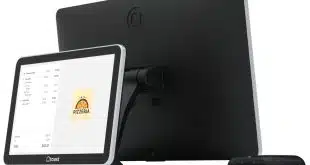A Boston-based mobile-transaction processor that has signed up a local taxicab company and a number of other merchants is hoping this week's Democratic National Convention will help propel the fledgling service into national prominence. Vayusa Inc., which offers the cell-phone-based service under the name MobileLime, has recruited 50 merchant locations in and around Boston and says it will have 100 by year's end. It's a matter of months, says BobWesley, chief executive, until the service rolls out nationally, though he won't disclose details regarding where and when he plans to introduce it next, nor will he reveal current transaction volumes. Meanwhile, some 5,000 consumers have signed up for MobileLime accounts, which give them the ability to pay retailers and service companies as well as receive and manage rewards and other loyalty incentives offered by participating merchants (the “Lime” part of the name stands for loyalty, information, money, and entertainment). After the national rollout, the service will attract 1 million users “in short order,” predicts Wesley, a former American Express Co. and MasterCard International executive, without being more specific about timing. “We've been able to connect the mobile phone to brick-and-mortar [merchants],” he says. “My dream is to be able to pay my babysitter with my cell phone.” The service, which is backed by venture capital and was introduced in March 2003, does not rely on billing by mobile telecom carriers. Rather, consumers call a MobileLime number on their cell phones when they are ready to pay. MobileLime identifies the user and authorizes the transaction, which is billed to card or prepaid accounts set up by the user upon enrollment. Wesley says he will soon add access to the automated clearing house for e-checks. With Watertown Taxi, enrolled passengers call while still in the cab, enter a tip percentage, and give the driver their membership number. The driver gives this number along with the fare details to the dispatcher, who enters the transaction in a point-of-sale terminal connected to MobileLime for authorization. MobileLime then forwards the transaction on to gateways and processors for settlement. Passengers receive a paper receipt from the driver along with a text-message receipt on their phones. The taxi company in this way enables electronic payment without installing equipment in their cars. Merchants can also use the text-message function to alert users about sales, discounts, and other promotions, and can use voice prompts to tell users about their cumulative points in loyalty programs when users call in to pay. Wesley won't reveal specifics about transaction fees to merchants, other than to say MobileLime levies a flat fee as well as a per-transaction charge. These fees pay for campaign management and loyalty programs as well as transaction services. Since MobileLime doesn't stand in as the merchant, participating retailers also pay the discount fees they would ordinarily pay for card transactions. Wesley would like to work more closely with the card networks, particularly with respect to markets like taxis. “This could be a way for the card companies to accelerate their growth in this industry,” he says. For now, though, he has his sights fixed on a national market potential defined, he says, by 160 million cell-phone users and rising. He's counting on that ubiquity to drive the growth of MobileLime as mobile commerce service that relies on existing payment channels. “The cell phone is the most convenient device person carries,” he says.
Check Also
Toast Links Dining to Instacart’s Marketplace; Ingenico Launches Its 360 Platform Plus AXIUM Terminals
Toast Inc. announced early Tuesday it is partnering with online grocery-delivery and-pickup service Instacart to …





